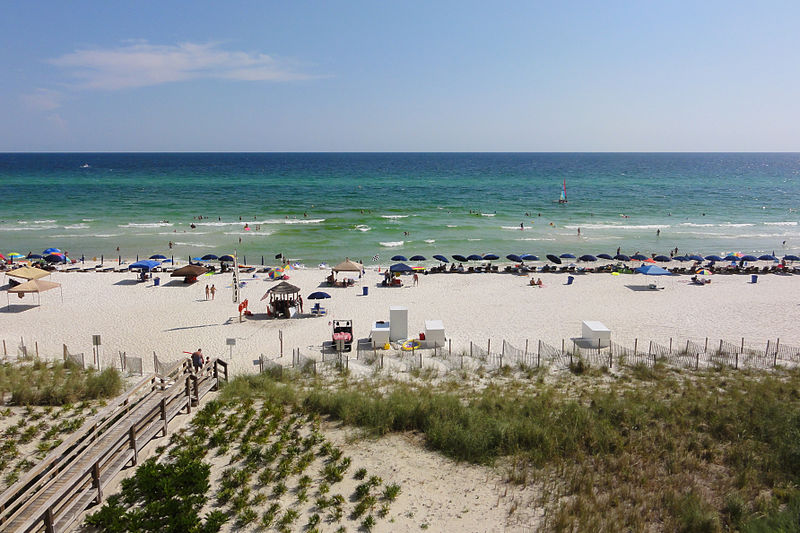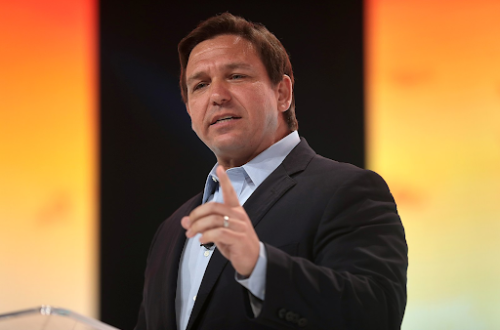As the United States has begun reporting the lowest COVID-19 numbers seen in months and the CDC continues to issue more relaxed COVID-19 safety guidelines, local and state restrictions in Florida have become increasingly nuanced. As expected, this seems to be comforting to some Floridians but concerning to others.
Following Republican Gov. Ron DeSantis’s declaration that all Floridians 18 and older would be eligible to receive the COVID-19 vaccine on April 5, nearly 51% of Florida residents have received at least one dose of the coronavirus vaccine as of June 11.
The number of vaccinated Floridians has slowly risen within the past six months, which has given hope for nearing the end of the pandemic. However, with only 41% of Florida’s population being fully vaccinated, it is not enough for Floridians to achieve herd immunity — meaning 70% of the population must be fully vaccinated.
With COVID-19 numbers starting to decrease in Florida, the state is now moving into what the Department of Health calls the “next phase of the COVID-19 response.” This includes reporting weekly cases as opposed to daily and completely lifting state restrictions.
With the vaccine more easily accessible in distribution sites such as local Publix pharmacies and the CDC stating that fully vaccinated individuals can resume normal pre-pandemic activities, Florida counties have seen a varied response to relaxing COVID-19 restrictions.
A new issue that many Florida counties — as well as countless others around the country — have encountered has been a misinterpretation of the new CDC guidelines regarding fully vaccinated people. According to Chief Medical Officer Dr. Anthony Fauci, the new guidelines for those who are vaccinated are just an assurance that they will be safe no matter what and are not an invitation for unvaccinated people to remove their masks.
Despite Fauci’s clarification on the new CDC guidelines, many institutions have begun to interpret them literally — notably schools and universities.
Schools in Duval County have reportedly decided to end their mask mandate, remove desk shields and do away with Duval Homeroom, which is the county’s virtual learning platform.
Opinions on the relaxation of COVID-19 precautions have been mixed, with some parents relieved their child does not have to go through the entire school day with a mask. Other parents whose children have medical conditions expressed concern.
For some institutions, plans to return to normal pre-pandemic operations were made prior to the coronavirus vaccine being widely available in the state. In early March, the University of Central Florida announced that it was “planning a full return to face-to-face learning, working and university activities beginning in the fall.”
In St. Johns County, restaurants and retail shops are allowed to operate at full capacity with social distancing only serving as a recommendation.
For residents of St. Johns County like Hiba Aslam, the ease of COVID-19 precautions in restaurants are a cause for concern.
“Even though the CDC said that vaccinated people can remove their masks, unvaccinated people have started to do the same, which puts them and other unvaccinated people at a dangerous risk,” Aslam said.
Further south, Miami-Dade County released a statement regarding CDC guidelines for vaccinated people while reiterating federal guidelines that masks are still required in airports or any form of public transportation.
As a way to mitigate Miami residents from discarding their mask usage, Miami-Dade County Mayor Daniella Levine Cava wrote a reminder in her public statement that only 50% of residents have been vaccinated. Cara urged people to “practice common sense” and follow recommended guidelines if they haven’t received the vaccine.
In Miami, Mayor Francis X. Suarez also released a statement declaring a state of emergency on June 1. This order enforced that the city manager must take action “to protect the health, safety and welfare of the community.”
Given that early June is usually when residents decide to embark on summer vacation, this state of emergency does not seem to be a surprise, considering that Miami Beach had to declare the same state of emergency in March to respond to various unsafe gatherings as a result of people being on spring vacation.
DeSantis’s push to ease COVID-19 restrictions throughout the pandemic has been interpreted as a move to ensure a successful 2022 reelection campaign for governor — as well as something to campaign on in a potential 2024 presidential bid. Candidates’ platform policies on COVID-19 are expected to play a role in how Americans cast their vote in both elections.
Check out other recent articles from Florida Political Review here.
Featured Image: Panama City Beach. Unmodified photo from Wikimedia Commons used under a Creative Commons License. (https://bit.ly/3vtUWqh)





